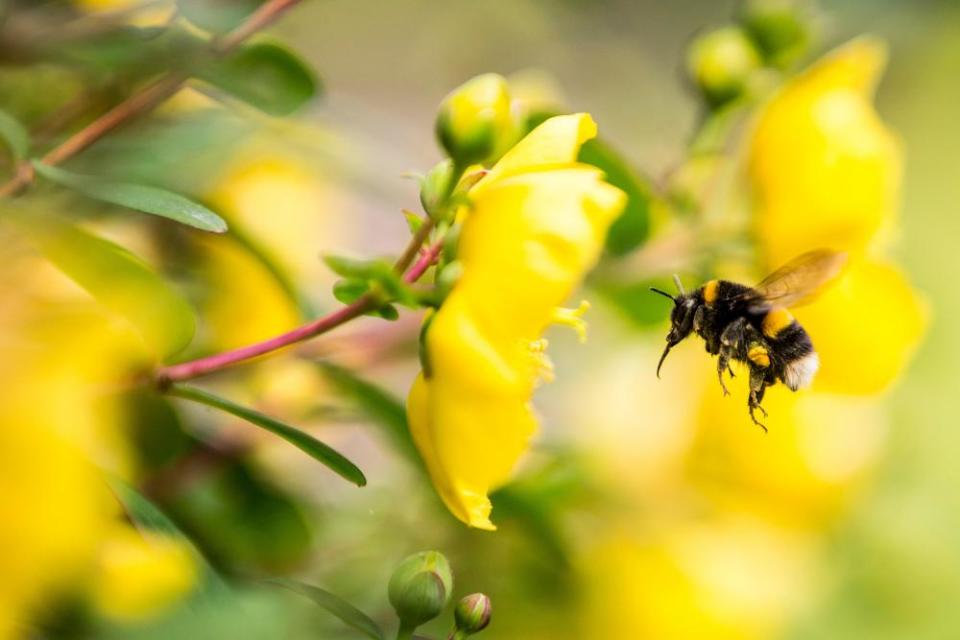Caffeine may help bumblebees pollinate more effectively, study shows

The caffeine in the morning coffee that primes many humans for the day appears to inject bumblebees with a similar dose of purpose, helping them pollinate more effectively, a study has found.
The impact of the climate crisis, habitat loss and pesticide use has strained wild pollinator populations, including bees, moths, wasps, butterflies, beetles and birds. As a result, some fruit growers have resorted to relying on “managed pollinators” such as commercial bumblebee colonies to pollinate their crops.
But these handy helpers aren’t quite as efficient as the farmers would like – some do not leave the nest, while others are easily distracted by other flora in the vicinity – which means the crop is not fully tended to.
The study was designed to evaluate whether the bees could be primed to target specific odours.
In order to do this, the researchers concocted a special blend of caffeine, sugar and the specific “target flower” smell (the scent of strawberry flowers) they wanted their bees to find, and wafted it through the nest.
The bees were then let loose in the lab where robotic flowers were either doused in the target odour or the soft, citrusy notes of linalool, a compound not present in strawberry flowers. “We were interested in seeing whether the bees would go for all of the flowers equally since they were all equally rewarded, or whether they go for the flowers that smell like the ones that they been kind of trained on in the nest,” said the study author, Dr Sarah Arnold of the natural resources institute at the University of Greenwich.
The bees that had trained using the caffeine concoction were far more interested in the target flowers with the strawberry odour than the distractor flowers, the authors said, adding that the experiment did not appear to be toxic because there was no impact on the bees’ lifespans.
The study was funded by the Biotechnology and Biological Sciences Research Council, Biobest (a supplier of bumblebees to fruit farms) and Berry Gardens (a fruit growers’ production and marketing group).
Previous research designed to alter bee behaviour involved putting caffeine directly on to the flowers to attract them, which is impractical on a large scale.
This experiment, however, could be a good start to making it easier for farmers to ensure their crop is pollinated, Arnold said. “In a field situation … the bees would have to deal with different weather conditions, they would have further to fly and other challenges,” she cautioned, noting that it would take a successful field-scale trial before this approach could be used in the real world.
If the results are replicated, then everyone stands to benefit, she added. “The growers get more value for money out of their commercial bumblebees, the wild bees potentially get a bit less competition for their natural food resources. And, as consumers, hopefully, we also get more fruit.”

 Yahoo News
Yahoo News 